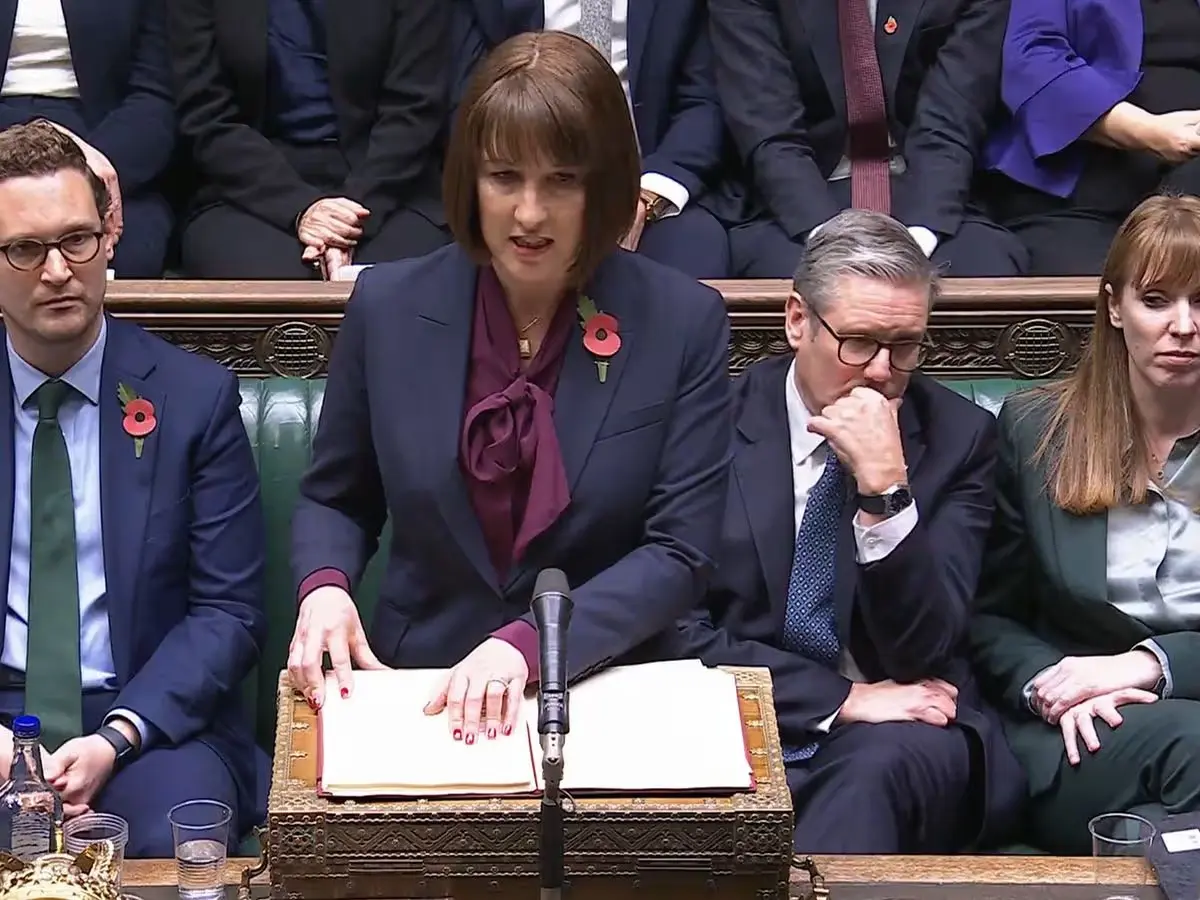The United Kingdom’s commitment to a sustainable future is yielding tangible results in its labor market. New data from the Office for National Statistics (ONS) reveals a remarkable surge in “green jobs,” with employment in sectors such as renewable energy, energy efficiency, and recycling increasing by a significant 34.6% in under a decade. In 2023, these burgeoning industries collectively employed an estimated 690,900 full-time equivalent (FTE) workers, a substantial leap from just over half a million in 2015.
While green jobs still represent a modest share of the UK’s total workforce – which stood at 12.5 million FTE roles last year – their rapid growth trajectory signals a profound transformation within the economy. This expansion is not merely an environmental triumph but also a powerful economic engine, creating high-value, well-paid positions and demonstrating the immense potential of the clean economy.
This comprehensive analysis delves into the nuances of this green jobs revolution, exploring the sectors driving this growth, the economic benefits these roles bring, the regional implications, and the critical policy support needed to sustain this momentum.
Defining “Green Jobs”: A Multifaceted Approach
Understanding the scope of “green jobs” is crucial to appreciating the scale of this transformation. The ONS employs a robust definition: “employment in an activity that contributes to protecting or restoring the environment, including those that mitigate or adapt to climate change.” This definition focuses on the activities undertaken rather than solely on the environmental impact, providing a broader and more inclusive measure.
The ONS primarily tracks green employment through three distinct, yet overlapping, approaches:
- Industry-based approach: This is the headline measure, encompassing all jobs within industries primarily classified as “green.” This includes sectors like waste management, renewable energy generation, and manufacturing of energy-efficient products.
- Firm-based approach: This identifies jobs within companies that, regardless of their primary industry, are actively engaged in low-emission activities or contribute significantly to environmental protection.
- Occupation-based approach: This captures specific “green occupations” that exist across various industries. For example, an energy manager in a logistics company, a sustainability consultant at a financial firm, or an environmental engineer in a construction company would all be counted as green jobs under this approach. This broader definition also includes professionals working in green finance, climate adaptation, and nature restoration.
This multi-pronged definition ensures a comprehensive capture of the evolving green economy, moving beyond traditional environmental roles to include a wide array of skilled positions that underpin the transition to a low-carbon future.
The Pillars of Green Growth: Sectoral Deep Dive
The ONS identifies three core pillars driving the bulk of green job creation: waste, energy-efficient products, and renewable energy. Each of these sectors has demonstrated consistent and impressive growth.
The Waste Sector: Embracing the Circular Economy
In 2023, the waste sector emerged as the largest employer within the green economy, supporting over 158,000 FTE roles. This sector’s growth is indicative of a broader shift towards a circular economy, where waste is minimized, resources are kept in use for as long as possible, and products and materials are reused, repaired, and recycled.
The waste management industry is no longer just about landfills. It encompasses a sophisticated ecosystem of activities:
- Recycling and Reprocessing: This involves collecting, sorting, and transforming waste materials into new products. This includes everything from plastics and metals to paper and glass. The growth in recycling infrastructure and advanced reprocessing technologies creates demand for engineers, plant operators, logistics managers, and skilled technicians.
- Waste-to-Energy: Converting non-recyclable waste into heat, electricity, or fuel through processes like incineration with energy recovery or anaerobic digestion. These facilities require specialized staff for operations, maintenance, and environmental compliance.
- Waste Reduction and Prevention: Roles focused on designing products for longevity, promoting reuse schemes, and developing innovative packaging solutions to minimize waste at the source.
- Resource Management and Consultancy: Experts who advise businesses and local authorities on waste reduction strategies, compliance with environmental regulations, and the implementation of circular economy principles.
The significant increase of 57,300 FTEs (56.7%) in the waste sector between 2015 and 2023, as highlighted by the ONS, underscores the economic viability and job-creating potential of moving towards a more resource-efficient economy.
Energy Efficiency: The Invisible Powerhouse
The energy efficiency industry followed closely, accounting for just over 145,000 full-time positions in 2023. This sector is often described as the “invisible solution” to climate change, as it focuses on reducing energy consumption without compromising comfort or productivity. Its growth is driven by a combination of regulatory mandates, rising energy prices, and a growing awareness of environmental impact.
Key areas within energy efficiency generating jobs include:
- Building Retrofits and Insulation: Upgrading existing homes and commercial buildings with better insulation, double glazing, and efficient heating systems. This creates demand for skilled tradespeople like installers, surveyors, and energy auditors.
- Smart Technologies and Controls: Developing and implementing smart thermostats, energy management systems, and IoT devices that optimize energy use in buildings and industrial processes. This requires software developers, data analysts, and system integrators.
- Industrial Efficiency: Helping energy-intensive industries reduce their consumption through process optimization, waste heat recovery, and the adoption of more efficient machinery. This involves industrial engineers, consultants, and specialized technicians.
- Low-Carbon Heating: The transition away from natural gas boilers to technologies like heat pumps. This creates a significant demand for trained installers and maintenance professionals. The UK government’s Future Homes Standard for new builds, requiring highly energy-efficient homes, will further drive demand in this area.
The “Assessment of the clean energy skills challenge” report by GOV.UK specifically notes that the energy efficiency and low-carbon heating sector is expected to see the largest increase in jobs by 2030, highlighting its critical role in the net-zero transition.
Renewable Energy: Powering the Future
The renewable energy sector contributed more than 71,000 full-time positions in 2023, representing a staggering 153.9% increase (43,100 FTEs) since 2015. This sector is at the forefront of the UK’s decarbonization efforts, with ambitious targets to transition away from fossil fuels for electricity generation.
The UK has become a global leader in certain renewable technologies, particularly offshore wind. Key job-creating areas include:
- Offshore Wind: The UK boasts the largest installed offshore wind capacity in the world. Developing, constructing, operating, and maintaining these massive wind farms creates a diverse range of jobs, from highly skilled engineers (electrical, mechanical, civil) and project managers to marine specialists, turbine technicians, and logistics personnel. Projects like Hornsea One and Dogger Bank are illustrative of the scale of employment.
- Solar Energy: While often associated with sunnier climates, the UK has seen significant growth in solar installations, both large-scale solar farms and rooftop panels. This drives demand for installers, electricians, maintenance technicians, and sales professionals.
- Emerging Technologies: Investment in nascent but crucial technologies like hydrogen production, carbon capture, utilization, and storage (CCUS), and advanced nuclear power (including Small Modular Reactors – SMRs) is also creating new job categories. These areas require specialists in chemical engineering, materials science, process control, and regulatory affairs.
- Grid Infrastructure and Storage: As more intermittent renewables come online, there’s a growing need for jobs in upgrading grid infrastructure, developing smart grids, and deploying large-scale battery storage solutions.
The “2025 Mint Selection Guide To Renewable Energy Jobs In The UK” from Mint Selection highlights that renewable energy roles accounted for 3.3% of all UK job vacancies in 2024, up from 2.3% in 2023, underscoring the high demand for talent in this rapidly expanding field.
Beyond the Core: The Wider Green Economy
The ONS’s comprehensive definition extends beyond these core sectors to include employment in related low-carbon areas, reflecting the pervasive nature of the green transition across the economy. These areas contribute significantly to the overall green jobs count and are crucial for achieving net-zero targets.
- Low-Carbon Transport: This category saw a remarkable 181.0% increase (24,800 FTEs) between 2015 and 2023. It includes jobs in the manufacturing of electric vehicles (EVs), development of EV charging infrastructure, public transport electrification (e.g., electric buses, hydrogen trains), and sustainable aviation and shipping fuels. The UK’s 2030 ban on new petrol and diesel car sales, a policy decision reinforced by the Labour government, is a major driver for job creation in EV manufacturing and related services.
- Equipment Repair and Longevity: As part of the circular economy, jobs focused on repairing, refurbishing, and extending the lifespan of products reduce waste and resource consumption. This includes technicians for electronics, appliances, and industrial machinery.
- Environmental Charities and Conservation: Organizations dedicated to nature restoration, biodiversity protection, and environmental advocacy also contribute to green employment. These roles often involve ecological surveying, conservation management, community engagement, and policy development.
- Green Finance: This rapidly growing segment involves financial services that facilitate the transition to a sustainable economy. This includes roles in sustainable investment, green bonds, carbon markets, ESG (Environmental, Social, and Governance) analysis, and climate risk management. London, as a global financial hub, is a natural center for these roles. The UK’s Green Finance Strategy, updated in 2023, aims to reinforce the UK’s position as a world leader in green finance and investment.
The fact that almost half of the UK’s workforce (around 46%) was employed by companies in the ten industries with the lowest greenhouse gas emissions in 2023 demonstrates the widespread integration of environmental considerations into the modern economy.
The Just Transition: Addressing Regional Disparities
While the overall picture of green job growth is positive, the ONS data also highlights a critical challenge: the uneven distribution of these jobs and the continued reliance of certain regions on carbon-intensive industries.
High-Emission Sectors and Regional Concentrations
The ONS noted that only a fraction of UK workers are in the highest-emission industries, such as electricity and gas companies (less than 0.5% of the workforce) and mining, quarrying, agriculture, forestry, and fishing (0.9%). However, transport and manufacturing stand out as both carbon-intensive and job-heavy. Regions like the East Midlands, West Midlands, and Yorkshire and the Humber have particularly high concentrations of staff in these high-emission sectors. For example, nearly one in four FTE employees (23.9%) living in the East Midlands were employed by firms in the UK’s five highest-emission industries in 2023. In contrast, London had the lowest proportion (7.2%).
This geographical concentration underscores the imperative of a “just transition.” A just transition refers to ensuring that the shift to a low-carbon economy is fair and inclusive, leaving no one behind. It involves:
- Protecting Workers’ Rights: Ensuring that workers in declining carbon-intensive industries are not simply left jobless but are supported through reskilling and redeployment programs.
- Creating New Job Opportunities: Actively investing in green industries in these affected regions to create new, sustainable employment opportunities.
- Community Development: Supporting local economies to diversify and build resilience, moving away from over-reliance on single industries.
- Social Dialogue: Engaging with workers, unions, businesses, and local communities to co-create transition plans that address their specific needs and concerns.
The UK Industrial Decarbonisation Challenge, supported by UKRI, is an example of a government initiative aimed at decarbonizing key industrial clusters (like Humber, Net Zero North West, South Wales, Tees Valley) while securing jobs and fostering innovation. These clusters, vital to the UK economy, account for 1.5 million jobs but also release about one-third of all business and industrial emissions. The challenge invests in technologies like carbon capture and storage (CCS) and hydrogen fuel switching to enable a managed transition.
The need for targeted policy interventions, investment in skills training, and robust social safety nets in these regions is paramount to ensure that the benefits of the green economy are shared equitably across the UK.
The Economic Premium of Green Jobs: Productivity and Pay
The analysis by the Confederation of British Industry (CBI), conducted in collaboration with the Energy and Climate Intelligence Unit (ECIU), provides compelling evidence of the economic advantages associated with green jobs. As of December 2024, businesses in the net-zero economy employed approximately 951,000 people, a 10.2% increase from the previous year.
Crucially, these jobs are not just numerous; they are also highly productive and well-compensated:
- Higher Average Salaries: The average salary in the net-zero economy was £43,100 pro rata, approximately £6,000 above the national average (£37,430). This higher pay reflects the specialized skills, technical expertise, and innovation required in many green roles.
- Superior Productivity: Each green role generated £105,500 in economic value (Gross Value Added – GVA), which is a remarkable 38% higher than the UK norm (£76,465). This elevated productivity is often attributed to the high levels of investment in technology, research and development, and advanced manufacturing processes within green industries.
The CBI’s report, “The future is green: the economic opportunities brought…”, directly challenges the notion that net-zero policies are economically detrimental. Instead, it posits that green industries are a significant driver of economic growth, job creation, and energy security.
The concentration of these higher-value green jobs in London and the South East, as noted by the ONS, presents both an opportunity and a challenge. While these regions are hubs for finance, technology, and professional services, ensuring that other parts of the UK also benefit from this economic boom is essential for achieving the government’s “levelling up” agenda. This further reinforces the need for a targeted just transition strategy.
Policy Support and the Future Outlook
The CBI was unequivocal in its message: the continued acceleration of green industries hinges on proper policy support. The UK government has indeed set ambitious targets and introduced various strategies to drive the green transition, but sustained and consistent policy signals are crucial.
UK Government’s Net-Zero Ambitions and Strategies
The UK has a legally binding target to achieve Net Zero emissions by 2050. This commitment is underpinned by a series of interim targets, including an 81% emissions reduction by 2035 (based on 1990 levels), an increase from the previously set 78%. This accelerated target, announced at COP29 in November 2024 by Prime Minister Keir Starmer, demonstrates a heightened ambition.
Key policy mechanisms and strategies include:
- Contracts for Difference (CfD) Scheme: This mechanism provides stable, long-term revenue support for renewable energy projects, de-risking investments and attracting private capital. It has been instrumental in the rapid expansion of offshore wind.
- Green Finance Strategy: The updated 2023 strategy aims to mobilize green investment, enhance financial services growth, incorporate nature and adaptation into financial flows, and align global financial flows with climate objectives. This includes developing the UK Green Taxonomy and Sustainability Disclosure Requirements (SDR).
- Industrial Decarbonization Plan: This plan focuses on decarbonizing energy-intensive industries (e.g., steel, cement, chemicals) through technologies like CCUS and hydrogen fuel switching, often concentrated in industrial clusters.
- Transport Decarbonization Plan: Aims to phase out petrol and diesel cars, invest in EV charging infrastructure, and support sustainable aviation fuels.
- Future Homes Standard: Mandates highly energy-efficient new builds, significantly reducing their operational emissions.
- Net Zero Innovation Portfolio: A £1 billion fund to accelerate the commercialization of low-carbon technologies.
The government’s commitment to these policies, alongside initiatives like the relaunched UK Net Zero Council, aims to ensure businesses play their part in achieving net zero through regulations, investment incentives, and emissions reporting.
Risks of Inaction and the Global Race
The CBI’s warning is stark: if the UK fails to capitalize on this window of opportunity, it risks falling behind global competitors. Many nations are actively vying for leadership in the green economy, investing heavily in renewable energy manufacturing, EV supply chains, and green technologies. Countries like Germany, China, and the United States (with initiatives like the Inflation Reduction Act) are pouring significant resources into their green industrial bases.
Missing out on this global race could lead to:
- Economic Stagnation: Loss of competitive advantage in emerging green industries, leading to slower economic growth.
- Job Losses: Failure to create enough new green jobs to offset potential declines in traditional carbon-intensive sectors.
- Erosion of Public Trust: A perception that the government is not serious about its climate commitments, undermining public support for the transition.
- Increased Energy Dependency: Continued reliance on volatile global fossil fuel markets, impacting energy security and affordability.
Conclusion: A Sustainable and Prosperous Future
The surge in UK green jobs is a powerful testament to the transformative potential of the clean economy. With a 34.6% increase in under a decade, these roles are not just growing in number but are also contributing significantly to national productivity and offering higher wages. From the burgeoning waste sector embracing circular economy principles to the rapid expansion of renewable energy and the pervasive drive for energy efficiency, the green economy is reshaping the UK’s industrial landscape.
However, the journey to a truly sustainable and equitable future requires sustained effort. Addressing the regional disparities in green job creation through a robust “just transition” framework is critical to ensure that no community is left behind. Continued, consistent policy support, strategic investment in innovation, and a proactive approach to skills development will be essential for the UK to maintain its competitive edge in the global green race.
The evidence is clear: investing in the green economy is not just an environmental necessity but a profound economic opportunity. By nurturing this growth, the UK can secure a future that is not only low-carbon but also prosperous, inclusive, and resilient.
Ready to take your career to the next level? Join our dynamic courses: ACCA, HESI A2, ATI TEAS 7 , HESI EXIT , NCLEX – RN and NCLEX – PN, Financial Literacy!🌟 Dive into a world of opportunities and empower yourself for success. Explore more at Serrari Ed and start your exciting journey today! ✨
photo source: Google
By: Montel Kamau
Serrari Financial Analyst
21st July, 2025
Article, Financial and News Disclaimer
The Value of a Financial Advisor
While this article offers valuable insights, it is essential to recognize that personal finance can be highly complex and unique to each individual. A financial advisor provides professional expertise and personalized guidance to help you make well-informed decisions tailored to your specific circumstances and goals.
Beyond offering knowledge, a financial advisor serves as a trusted partner to help you stay disciplined, avoid common pitfalls, and remain focused on your long-term objectives. Their perspective and experience can complement your own efforts, enhancing your financial well-being and ensuring a more confident approach to managing your finances.
Disclaimer: This article is for informational purposes only and does not constitute financial advice. Readers are encouraged to consult a licensed financial advisor to obtain guidance specific to their financial situation.
Article and News Disclaimer
The information provided on www.serrarigroup.com is for general informational purposes only. While we strive to keep the information up to date and accurate, we make no representations or warranties of any kind, express or implied, about the completeness, accuracy, reliability, suitability, or availability with respect to the website or the information, products, services, or related graphics contained on the website for any purpose. Any reliance you place on such information is therefore strictly at your own risk.
www.serrarigroup.com is not responsible for any errors or omissions, or for the results obtained from the use of this information. All information on the website is provided on an as-is basis, with no guarantee of completeness, accuracy, timeliness, or of the results obtained from the use of this information, and without warranty of any kind, express or implied, including but not limited to warranties of performance, merchantability, and fitness for a particular purpose.
In no event will www.serrarigroup.com be liable to you or anyone else for any decision made or action taken in reliance on the information provided on the website or for any consequential, special, or similar damages, even if advised of the possibility of such damages.
The articles, news, and information presented on www.serrarigroup.com reflect the opinions of the respective authors and contributors and do not necessarily represent the views of the website or its management. Any views or opinions expressed are solely those of the individual authors and do not represent the website's views or opinions as a whole.
The content on www.serrarigroup.com may include links to external websites, which are provided for convenience and informational purposes only. We have no control over the nature, content, and availability of those sites. The inclusion of any links does not necessarily imply a recommendation or endorsement of the views expressed within them.
Every effort is made to keep the website up and running smoothly. However, www.serrarigroup.com takes no responsibility for, and will not be liable for, the website being temporarily unavailable due to technical issues beyond our control.
Please note that laws, regulations, and information can change rapidly, and we advise you to conduct further research and seek professional advice when necessary.
By using www.serrarigroup.com, you agree to this disclaimer and its terms. If you do not agree with this disclaimer, please do not use the website.
www.serrarigroup.com, reserves the right to update, modify, or remove any part of this disclaimer without prior notice. It is your responsibility to review this disclaimer periodically for changes.
Serrari Group 2025
















